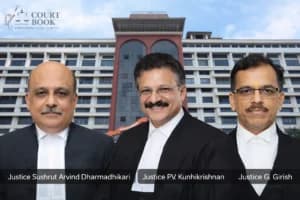In a brief but pointed order that stirred quite a bit of discussion inside Courtroom No.__ at the Indore Bench, the Madhya Pradesh High Court on 20 November 2025 questioned the government’s sudden urgency in removing an alleged encroachment almost three decades after first issuing notices. The matter - Abdul Majid vs Union of India & Others - drew attention because of the unusually long gap between the earlier notices and the present action.
Background
Abdul Majid, the petitioner, approached the court under Article 226 of the Constitution after receiving a fresh notice on 19 November 2025 directing him to clear what authorities described as “illegal encroachment.”
Read also:- Supreme Court Faces New Twist as Kuki Group Accuses Manipur Police of Sending Edited Audio Clips in Probe Linked to Former CM Biren Singh
His counsel, senior advocate Ajay Bagadia, supported by advocate Rizwan Khan, told the court that this sudden move lacked fairness. “There was no hearing, no chance to respond… straightaway a removal direction,” his side argued.
Across the aisle, government counsel Ashutosh Nimgaonkar maintained that the petitioner had himself ignored previous notices. The implication was simple: if he didn’t respond then, why should he be offered time now? The court appeared unimpressed with that line.
Court’s Observations
Justice Pranay Verma took a close look at the papers and made a remark that caused an audible stir in the room. The bench observed, “Earlier notices were issued in 1996–97, almost 30 years ago, and only now a fresh notice has been issued.”
Read also:- Supreme Court Raps Tenant for 5-Year Non-Payment, Restores Eviction Orders in Kochi Shop Dispute: Detailed Analysis of Landmark Ruling
This gap, the court noted, wasn’t a small procedural bump - it was an entire generation. The judge pointed out that if authorities slept over the matter for three decades, they couldn’t suddenly wake up and take action without giving the affected person a proper chance to defend himself.
“Natural justice doesn’t vanish just because time has passed,” one lawyer outside the courtroom whispered, reflecting the general sentiment.
Justice Verma went further, adding that any action after such a long period “ought to have been preceded by an opportunity of hearing.” The tone suggested that the court was not convinced by the respondents’ argument that the petitioner had forfeited his right to reply simply because he hadn’t responded in the 1990s.
Read also:- Supreme Court Steps In After Years of Neglect, Orders Urgent Action to Save Jojari–Bandi–Luni
Decision
The High Court eventually issued a practical, balanced direction. Abdul Majid must file his reply - along with documents -within 15 days before the competent authority. After that, the authority must give him a proper hearing and pass a “reasoned and speaking order.”
To ensure fairness, the court also protected him from immediate eviction. No coercive action may be taken until the hearing is completed, and even if the final order goes against him, authorities must wait an additional 10 days before taking any step.
The petition was then disposed of, with the judge clarifying that the court was not expressing any view on the merits of the alleged encroachment - only on the fairness of the process.
Case Title: Abdul Majid vs Union of India & Others
Case Number: Writ Petition No. 45707 of 2025
Case Type: Writ Petition under Article 226 (challenging encroachment removal notice)
Decision Date: 20 November 2025















